 |
|
|
 |
 |
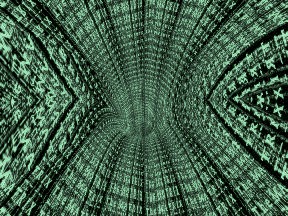
Where Does Reality Begin and End?
Problem:
"We don't know what it is that we don't know."
There are more things in heaven and earth Horatio, Than are dreamt of in your philosophy.
--Hamlet
In the beginning God created the heavens and the earth.
Now the earth was formless and empty, darkness was over the surface of the deep, and the Spirit of God was hovering over the waters.
And God said, "Let there be light," and there was light.
God saw that the light was good, and he separated the light from the darkness.
Genesis 1: 1-4
|
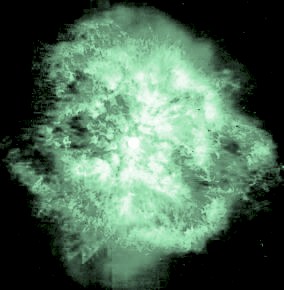
Big Bang?
Scientists speak of the dimensionless physical constants and the dimensionless initial conditions at the moment of the universe’s beginning, which is the beginning of the heavens and the earth – the Big Bang.
They speak of that moment as the Planck epoch; the earliest moment in time lasting shortest possible interval of time.
It was in that instant (lasting from time 0 to time 0.00000000000000000000000000000000000000000001 seconds) that all the fundamental forces of the universe (our physical world) were unified. This moment of creation, over 10 billion years ago, took the universe from an inconceivably small dimensionless speck to the era of cosmic inflation that led to the entire physical universe that is observable today.
You can see the timeline at: "Graphical timeline of the Big Bang," Wikipedia, The Free Encyclopedia.
|
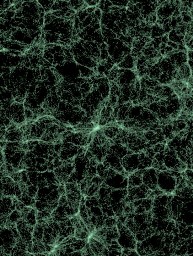
Why did the universe come into existence? Where did it come from?
One view is that it came from absolute nothingness. How could something arise from absolute nothingness? One conjecture is that if you start with absolute nothingness which can be symbolized by a value of 0 (zero) or complete emptiness, then such a value as 0 can be separated into a positive quantity (+) and an equal negative quantity (-), the sum of which is still 0. There is this theory among physicist that the universe immediately following the “Big Bang” was occupied with equal amounts of matter (+) and anti-matter (-).
Until the “Big Bang” the universe was dimensionless. There was no space, no time, no energy, no matter. Eventually, as this universe expanded, it began to cool and form the sub-atomic particles such as quarks, which latter form protons and neutrons, the building blocks of matter (atoms) and eventually, the elements. The atomic particles, electrons, protons, neutrons and the sub-atomic particles are in fact primarily regions of empty space where energy fields act according to rules (information) and create the illusion of matter (solid material). The universe is not in fact solid matter, but actually is composed only of energy and information. That is why matter and energy are interchangeable.
You and I are in fact these elements (information and energy) organized in specific ways (your DNA).
If we, and all that surround us is composed of only “information and energy” and the energy may in fact net out to zero, then where did the information originate? Was the information present at time zero, the moment of creation? And if all the energy in the balance sheets is reconciled back to zero, where will the information then reside?
Does the Bible hold any clues to the answer?
I am the Alpha and the Omega, the First and the Last, the Beginning and the End. Revelation 22: 13
|
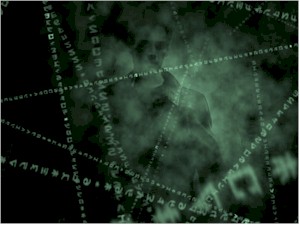
Neo, what is your location?
Are we human beings having a spiritual experience, or spiritual beings having a human experience?
The concept embodied in this question can be illustrated in considering the premise of the 1999 science fiction film “The Matrix.” The film describes a world of simulated reality which is perceived as real by the human characters experiencing it.
Could our world of quarks, protons, atoms, DNA sequences, all taking place in a 3 dimensional time and space continuum, a world not of solid objects, but of information and energy, be the simulated reality which is perceived as real by intelligent beings having human form?
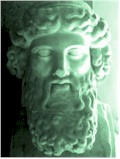 The question may not be as strange as it first appears. In “The Republic” by Plato (c. 360 BC) Socrates poses the question to Glaucon of the experience of prisoners in a cave. The question may not be as strange as it first appears. In “The Republic” by Plato (c. 360 BC) Socrates poses the question to Glaucon of the experience of prisoners in a cave.
Socrates: And now, I said, let me show in a figure how far our nature is enlightened or unenlightened: --Behold! human beings living in a underground den, which has a mouth open towards the light and reaching all along the den; here they have been from their childhood, and have their legs and necks chained so that they cannot move, and can only see before them, being prevented by the chains from turning round their heads. Above and behind them a fire is blazing at a distance, and between the fire and the prisoners there is a raised way; and you will see, if you look, a low wall built along the way, like the screen which marionette players have in front of them, over which they show the puppets.
Glaucon: I see.
Socrates: And do you see, I said, men passing along the wall carrying all sorts of vessels, and statues and figures of animals made of wood and stone and various materials, which appear over the wall? Some of them are talking, others silent.
Glaucon: You have shown me a strange image, and they are strange prisoners.
Socrates: Like ourselves, I replied; and they see only their own shadows, or the shadows of one another, which the fire throws on the opposite wall of the cave?
Socrates: 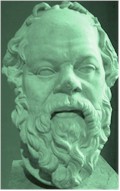 True, he said; how could they see anything but the shadows if they were never allowed to move their heads? True, he said; how could they see anything but the shadows if they were never allowed to move their heads?
Socrates: And of the objects which are being carried in like manner they would only see the shadows?
Socrates: Yes, he said.
Socrates: And if they were able to converse with one another, would they not suppose that they were naming what was actually before them?
Glaucon: Very true.
Socrates: And suppose further that the prison had an echo which came from the other side, would they not be sure to fancy when one of the passers-by spoke that the voice which they heard came from the passing shadow?
Socrates: No question, he replied.
Socrates: To them, I said, the truth would be literally nothing but the shadows of the images.
|
We are all just prisoners here of our own device.
We are, it would seem all prisoners of our own experience, our own biology, our own physics. Where then do we look for truth?
If we don't know what it is that we don't know, then where are we, who are we, what are we?
In his book “On Human Nature”, Wilson has said:
The essence of the argument, then, is that the brain exists because it promotes the survival and multiplication of the genes that direct its assembly. The human mind is a device for survival and reproduction and reason is just one of its various techniques. Steven Weinberg pointed out that physical reality remains so mysterious even to physicists because of the extreme improbability that it was constructed to be understood by the human mind. We can reverse that insight to note with still greater force that the intellect was not constructed to understand atoms or even to understand itself but to promote the survival of human genes. The reflective person knows that his life is in some incomprehensible manner guided through a biological ontogeny, a more or less fixed order of life stages. He senses that with all the drive, wit, love, pride, anger, hope, and anxiety that characterize the species he will in the end be sure only of helping to perpetuate the same cycle. and reason is just one of its various techniques. Steven Weinberg pointed out that physical reality remains so mysterious even to physicists because of the extreme improbability that it was constructed to be understood by the human mind. We can reverse that insight to note with still greater force that the intellect was not constructed to understand atoms or even to understand itself but to promote the survival of human genes. The reflective person knows that his life is in some incomprehensible manner guided through a biological ontogeny, a more or less fixed order of life stages. He senses that with all the drive, wit, love, pride, anger, hope, and anxiety that characterize the species he will in the end be sure only of helping to perpetuate the same cycle.
With all due respect to Mr. Wilson, perhaps there is more than extreme improbability at work here. Perhaps as a biologically unintended consequence of its “promoting the survival and multiplication of the genes”, the human mind evolved capabilities that allow it to “understand atoms and itself.” Perhaps it is part of the same improbable circumstances that has led us to be here. Perhaps there are no coincidences and that all that would be viewed as the historical contingency of evolutionary change is really part of the plan.
Perhaps that which appears unintended, was intended after all.
|
|
|
 |
|
|
 |
|
|
 |
|
Copyright by OnHumanNature.com 2008
|
|
|
 |